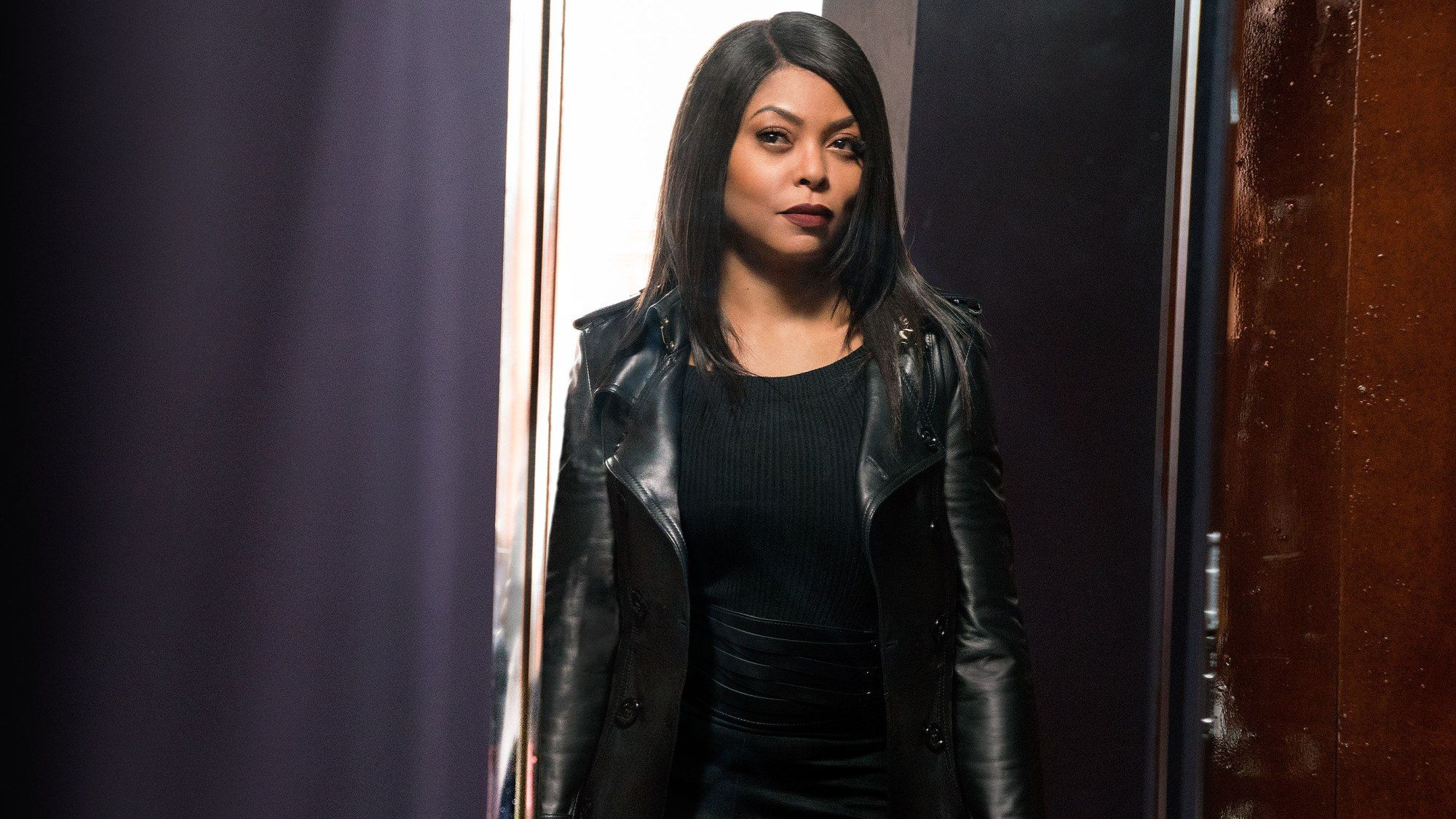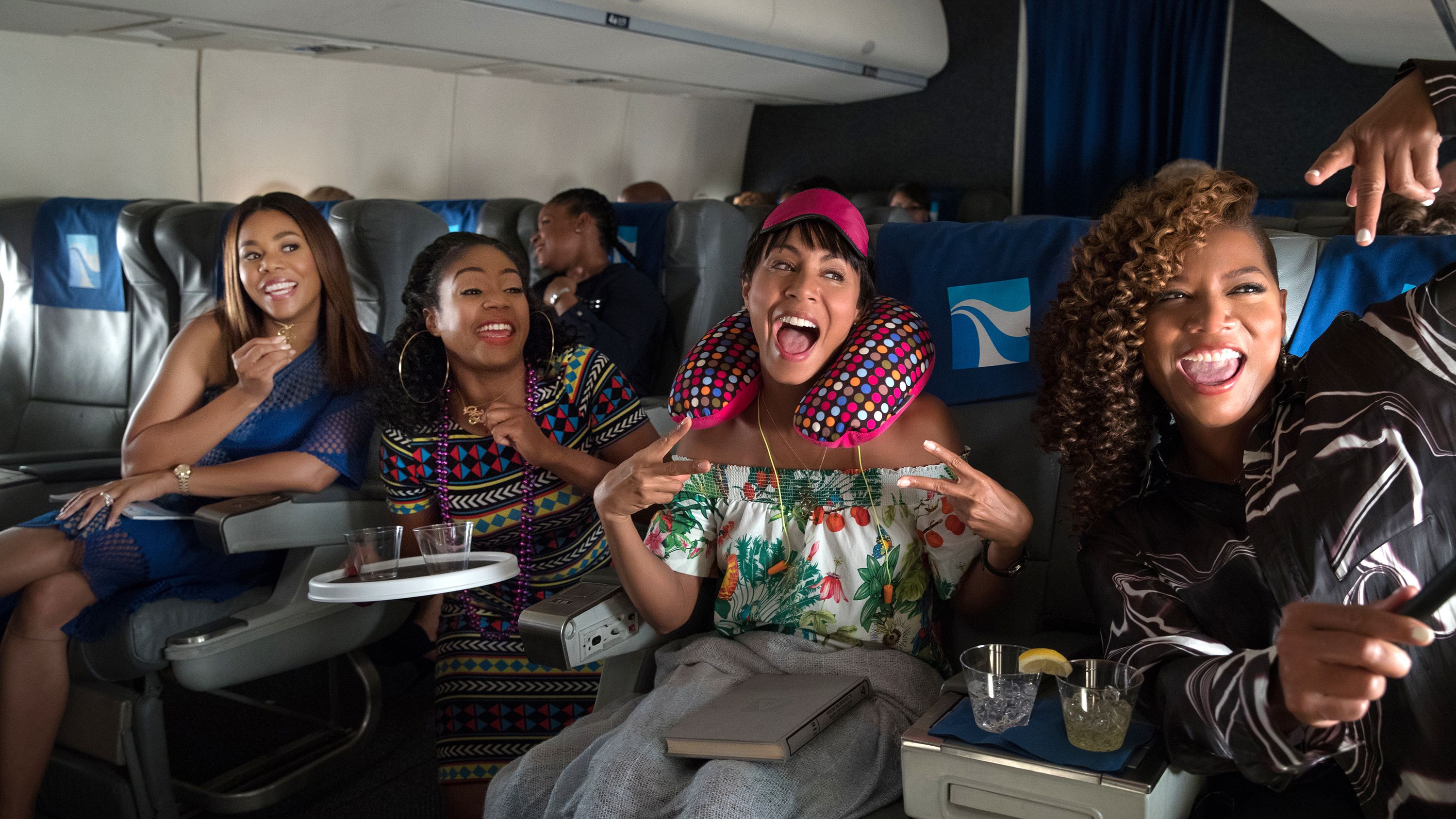Black People Shouldn't Have to Save Black Films—So Stop Asking Them To
With the release of Black Panther, there have been numerous calls for Black people to go out and support Black films. But that won't make a difference in Hollywood.
Black Panther has dominated the pop culture narrative for the last several months, and for good reason: It celebrates the multidimensional nature of the Black experience in a robust and refreshing way. It's unprecedented to see a predominantly Black cast (Angela Bassett! Michael B. Jordan! Lupita Nyong'o! Chadwick Boseman!) in a sci-fi Marvel film with an African-American director, and the Kendrick Lamar-produced soundtrack is saturated with a bevy of Black talent (SZA! The Weeknd! Anderson Paak! 2 Chainz!).
"Every Black movie shouldn't have to be a guaranteed box office smash for it to simply exist."
Even more refreshingly, Black Panther has already outsold all previous first quarter movies on Fandango, and is predicted to make over $100 million during its opening weekend. But we must remember that Black consumerism is not the reason Black Panther will financially sink or swim.
Representation in film is, of course, vital because it's still so rare: The top highest grossing movies of 2017—when they weren't animated—all had white leads. This is why Frederick Joseph raised money for his young Black students to see Black Panther; superheroes of color are painfully scarce in Hollywood.
But when Black people are being pressured to support Black films, and being told that we are exclusively responsible for their success—the rhetoric changes and becomes dangerous. It removes the onus of blame from the systemic racism of Hollywood and places it on the shoulders of an underrepresented and disenfranchised group of people.
Take Academy Award winning actress Mo'Nique. She recently called for a boycott of Netflix after they offered her $500,000 for a comedy special—despite the fact that they paid Amy Schumer $13 million (and Chris Rock and Dave Chapelle $20 million). Although the boycott was intended for all of her fans, the only people affected by such blatant misogynoir were Black women—Mo'Nique's target audience.

When Proud Mary—an action film starring the legendary Taraji P. Henson—wasn't screened for movie critics and was barely promoted, it was suddenly up to Black people to make it a hit. Producer Will Packer waxed poetic on Twitter about the importance of Black folk seeing Proud Mary because it starred one of their own—a sentiment that was endorsed by actress Gabrielle Union. Black people (and again, Black women in particular) were shamed for not supporting Nate Parker's Birth of a Nation after it flubbed (despite the allegations of rape he faced).
"Do more high grossing Black films really equal more opportunities to tell our stories? Not really."
Capitalism dictates that if Black films do well monetarily, that translates into Hollywood making more of them. But do more high grossing Black films really equal more opportunities to tell our stories? Not really. Black movies have proved to be successful time and time again. When Think Like a Man—starring Kevin Hart and Meagan Good—was released in 2012, it knocked out The Hunger Games as the number one movie in America. It also went on to gross $96 million on a production budget of just $12 million. Meanwhile, 2016's Moonlight was critically acclaimed and went on to receive a Golden Globe and Oscar for Best Picture. Hidden Figures and Get Out broke records at the box office. And last year, Girls Trip—which featured all Black actors, producers and writers, grossed over $100 million—the first film of its kind to do so.
Get exclusive access to fashion and beauty trends, hot-off-the-press celebrity news, and more.

Yet despite how much money Black movies make, or how many records they break, they still only make up a tiny sliver of films that Hollywood is willing to green light. Pressuring Black people to spend their money on movies—even ones they may have no interest in seeing—just to support actors who look like them on the big screen won't change how the larger institutional forces at play work.
Until diversity is truly championed and carried out behind the scenes—and people of color have more opportunities to act, direct, produce, write, and critique films—nothing will really change. Every Black movie shouldn't have to be a guaranteed box office smash for it to simply exist. We should have the right to create, experiment, and even fail in our films the same way our white counterparts have done because it's all part of the human experience.
RELATED STORY
